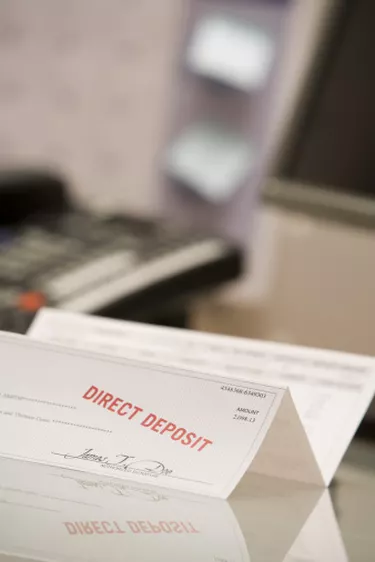
You've come across an old payroll check that for some reason never made it into your bank account. You worked hard for the money, but the check says "Void after . . . " some period of time. You're not certain you will be able to claim the money. Although this doesn't happen often, you may be able to simply have your employer reissue the check. If not, there are state laws to help you claim the money.
Payroll Accounts
Video of the Day
Your employer paid your salary out of its payroll account, which it set up with the bank. When it issued your check, it debited the account; the funds were subtracted from the balance. Even though you never cashed the check, that money was made unavailable for other payments. In effect, the money is missing until the check is cashed and remains an unpaid liability.
Video of the Day
Void Checks
When a company orders checks for its payroll account, it specifies a "Void" date, which is usually on the face of the check. If the check states "Void after 90 days," for example, then you may not be able to cash or deposit the check (some banks will overlook the void date). By the Uniform Commercial Code, which guides banks in their operations, checks more than six months old are considered "stale-dated" and can be rejected.
Reissuance
Each business sets a policy, in cooperation with its bank, of how to handle "stale-dated" checks. Many companies will simply reissue a check if not more than a year, or in some cases two years, have passed since the original date of the check. Ask your employer about the reissuance policy.
Voids and Stop Payments
You have a check reissued by returning it to your employer and requesting it void the old check and issue a new one. This process returns the funds to the account, allowing the company to write a new check and balance the account. If you lost the check, the employer may incur a bank fee to carry out a stop payment, which may be deducted from the new check.
Unclaimed Property
Each state has laws concerning unclaimed property, including payroll and other checks. After a period of time has lapsed, and the check goes uncashed, then it is legally unclaimed. In New Jersey, for example, the period of time for unclaimed property is three years. At the end of this period, the issuing company is supposed to turn the funds over to the state. The state holds these funds as unclaimed until you, or your heirs or designated agent, files a claim. You or your representative must complete a claim form, which is usually available on the state's official web site, and provide identification. The state agency will process the claim and, if the claim is approved, render the unclaimed funds to you.